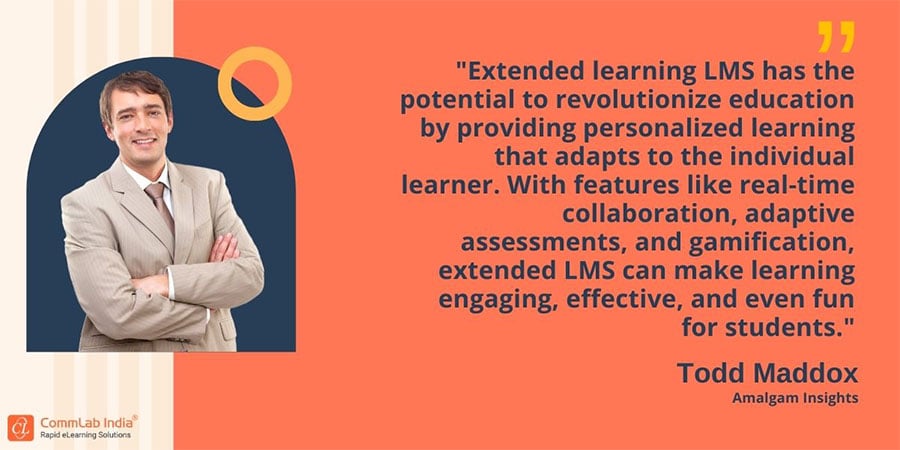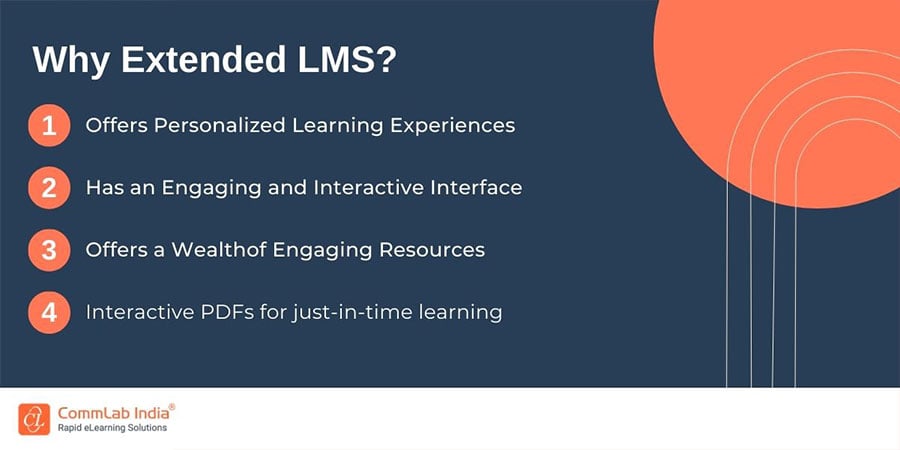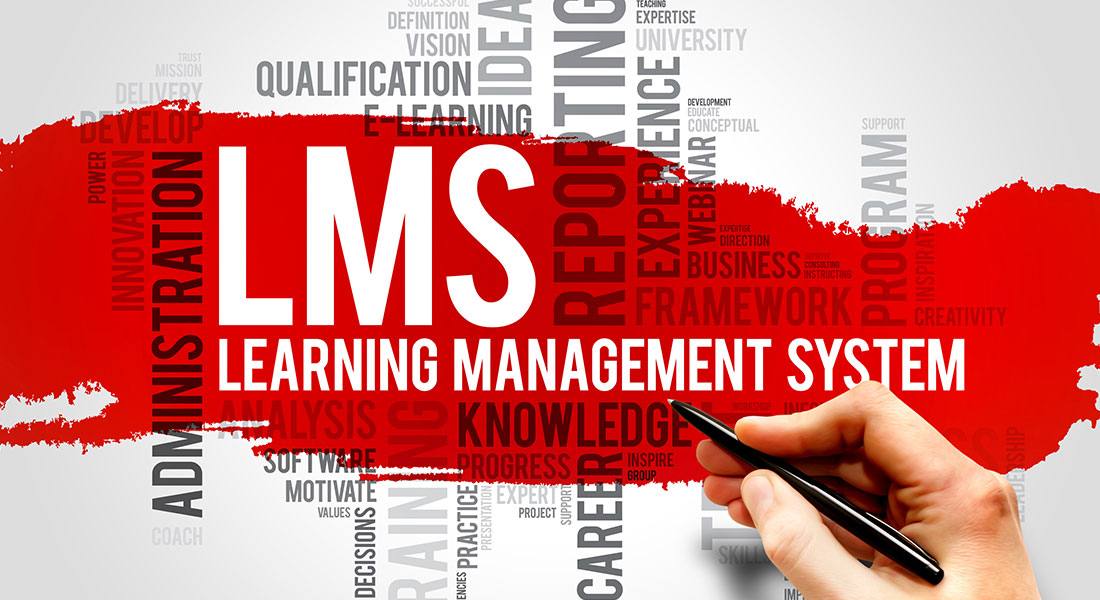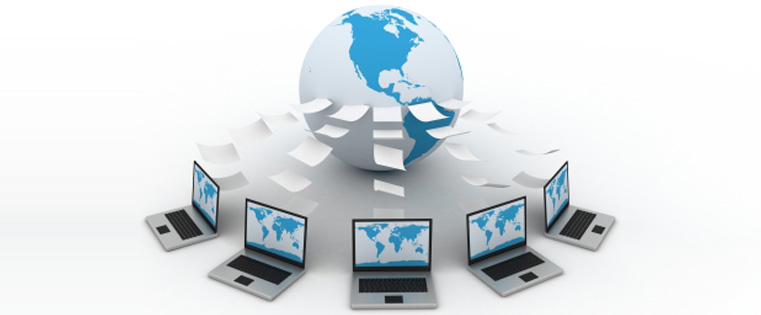Why Extended Learning LMS is the Future of Corporate L&D: Insider’s Guide

Considering the extending business horizons, it is only fair that corporate eLearning too is extended to cater to diverse audiences. This has further led to the introduction of extended learning management system (LMS) – which is being dubbed as the future of corporate training.
Owing to its promise to revolutionize the way we learn and teach, extended LMS deserves all the glory its getting. From providing personalized learning experiences to fostering collaboration among the learners, this innovative platform has a lot to offer.
Let’s explore more about this innovative platform and why Extended Learning LMS is the way forward for modern-day corporate training.
Wondering if Extended Learning LMS is Worth the Hype?
Definitely! Here are some reasons why –
- Provides greater levels of engagement
- Delivers date-driven insights
- Offers highly personalizes learning experiences
- Makes learning more accessible
Introduction to Extended Learning LMS

Extended LMS, as the name suggests, is an extended version of traditional learning management system. Designed for modern day global learners, extended LMS delivers more immersive and interactive learning experiences by leveraging on tools and techniques such as personalized learning, social learning, gamification, etc. In addition to this, it can also integrate well with other platforms and technologies, this in turns paves path for a seamless learning experience.
Why Extended Learning LMS
Personalization and engagement are among the top learning and development (L&D) trends that organizations need to focus on to succeed in 2023. Extended LMS leverages on these trends to take learning experiences to a whole new level.

These features of extended LMS help you understand better –
1. Personalized learning experiences: Extended LMS focusses on the learners individual learning needs and interests and provides a personalized learning experience accordingly.
2. Engaging and interactive interface: The interface of extended LMS is designed to be engaging and interactive, making it easy and fun to use. It supports social learning and collaboration to help employees connect with peers which boosts learner engagement and interactivity.
3. Supports a wealth of resources: Extended Learning LMS comes with a wealth of resources, including video lessons, quizzes, exercises, and more. This means that students will always have something new to learn and keep them engaged.
4. Content management: Extended learning LMS serves as an excellent platform for hosting and delivering eLearning content. The administrators and instructors can also access, update or modify the content on it.
5. Multilingual support: The extended learning LMS is also a great opportunity for companies seeking to strengthen their global corporate training efforts as it supports content translation and localization. This way, the platform helps global learners to access the eLearning material in their native language.
6. Advanced analytics: This innovative platform provides the eLearning administrators with valuable insights on learners’ performance and progress. This information helps them making informed decisions about the eLearning courses and make improvements accordingly.
7. Integration: Extended learning LMS integrates with other systems such as the CRM and HRMS and offers a seamless learning experience while also helping administrators and instructors manage it better.
→ Download Now: eLearning Trends 2023 – The View from the Trenches
Traditional LMS vs Extended Learning LMS
| Traditional LMS | Extended Learning LMS |
| Focused on managing and delivering eLearning content. | Focuses more on providing a comprehensive learning experience that is more engaging and immersive. |
| Offers room for interactivity and engagement. | Focusses more on interactivity and engagement so the learners have a delightful learning experience. |
| Limited personalization and flexibility in learning paths. | Offers personalized learning paths based on learners’ needs and preferences. |
| Lacks the ability to incorporate social learning and user-generated content. | Incorporates social learning, peer collaboration, and user-generated content. |
Building on the traditional LMS, extended LMS also offers better integration and automation to facilitate organizations focus more on delivering the best training rather than on menial tasks such as record keeping, data entry, etc.
Additionally, it also offers leaning analytics that empower L&D teams to take informed, data-driven decisions to drive measurable results.
But did you know that there are still some organizations that still don’t use LMS? Wondering why? Here’s a video to explain:
Wrapping Up
To wrap it up, extended learning LMS has immense potential to revolutionize corporate training. Extended learning LMS comes packed with several engaging and interactive features that make learning fun. At the same time, it also helps L&D developers create engaging and effective online courses in line with the industry trends.
Want to know more about the eLearning trends so you too can stay ahead of your eLearning game? Here’s a must-read eBook to help you –




